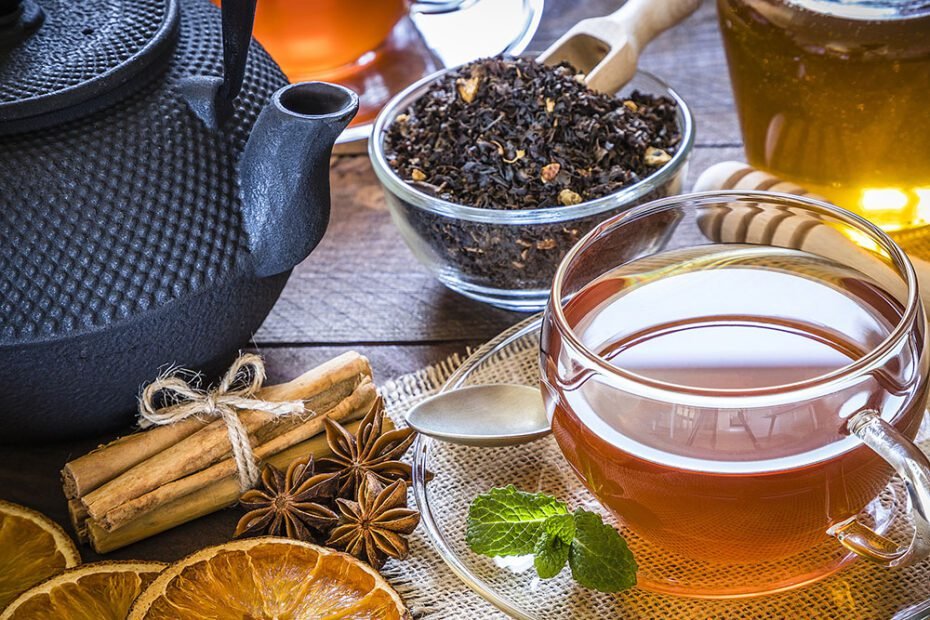Tea has been cherished for centuries not only for its diverse flavors but also for its potential health benefits. From soothing herbal infusions to antioxidant-rich green tea, this article explores the wide range of health advantages that different types of tea can offer.
1. Green Tea
Green tea is celebrated for its high levels of antioxidants, particularly catechins. These compounds have been linked to various health benefits, including:
- Heart Health: Regular consumption may help lower bad cholesterol levels and reduce the risk of heart disease.
- Weight Management: Some studies suggest that green tea extract can aid in weight loss by boosting metabolism.
- Cognitive Function: The antioxidants in green tea may support brain health and reduce the risk of cognitive decline.
2. Black Tea
Black tea, rich in flavonoids, has its own set of potential advantages, such as:
- Heart Health: Regular consumption may help reduce the risk of heart disease and lower blood pressure.
- Digestive Health: Black tea has been associated with improved gut health and digestion.
3. Herbal Tea
Herbal teas, like chamomile, peppermint, and ginger, offer various health benefits:
- Digestive Comfort: Peppermint and ginger teas may help relieve indigestion and soothe upset stomachs.
- Stress Reduction: Chamomile tea is known for its calming effects and may aid in reducing stress and improving sleep.
- Anti-Inflammatory: Turmeric tea, often blended with black pepper, can have anti-inflammatory properties.
4. White Tea
White tea is a delicate variety that may offer the following health perks:
- Skin Health: It contains antioxidants that may help protect the skin from damage caused by UV rays and aging.
- Oral Health: Some compounds in white tea may help inhibit the growth of bacteria in the mouth, contributing to better oral hygiene.
5. Oolong Tea
Oolong tea, which falls between green and black tea in terms of oxidation, has potential benefits:
- Weight Management: Some studies suggest that oolong tea may help with weight loss by increasing metabolism.
- Antioxidant Properties: It contains antioxidants that can help combat oxidative stress.
6. Rooibos Tea
Rooibos, or red bush tea, is caffeine-free and offers:
- Antioxidant Benefits: Rooibos tea is rich in antioxidants that can neutralize free radicals in the body.
- Skin Health: Some compounds in rooibos may promote healthy skin by reducing inflammation.
7. Matcha Tea
Matcha is a type of green tea that is ground into a fine powder. It provides:
- Concentration and Alertness: Matcha contains L-theanine, which can enhance mental alertness and focus.
- Detoxification: Some proponents believe that matcha can support detoxification due to its high antioxidant content.
8. Pu-erh Tea
Pu-erh tea, a fermented variety, is thought to offer:
- Digestive Aid: It has been traditionally used to aid digestion and promote gut health.
- Cholesterol Management: Some studies suggest that pu-erh tea may help lower bad cholesterol levels.
In Conclusion
Tea, in its various forms, can be a delightful and healthful addition to your daily routine. Whether you prefer the earthy notes of pu-erh or the calming effects of chamomile, there’s a tea variety to suit your taste and health goals. While tea can offer numerous benefits, it’s essential to remember that individual responses may vary. If you have specific health concerns or are pregnant, it’s advisable to consult with a healthcare professional before making tea a regular part of your diet. Enjoy your cup of tea as both a soothing ritual and a way to potentially support your well-being.
